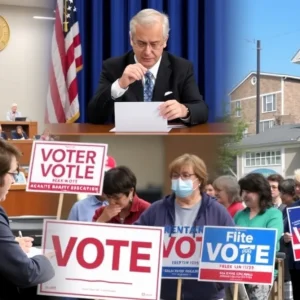SC Supreme Court denies death row inmate’s request, execution method chosen
The Supreme Court of South Carolina has rejected the plea of a death row prisoner, Freddie Eugene Owens, scheduled for state’s first execution in 13 years. Owens requested additional information on the drugs utilized in lethal injections before his execution, a request that was denied on September 6, 2024.
The Background
Owens is to be executed on September 20, 2024 for the murder of a convenience store clerk in Greenville during a robbery in 1997. He was convicted and sentenced to the death penalty in 1999. Owens’ fight to overturn this sentence has been ongoing for years.
The Appeal
The Supreme Court was presented with this appeal after a July ruling enabled executions to proceed. As part of the execution process, Owens was given a choice between lethal injection, firing squad, or electric chair. However, citing his Muslim faith’s teachings against suicide, Owens declined to make a choice, equating the selection to participating in his own death. Instead, his attorney, Emily Paavlova, was tasked with the decision.
In his appeal for further specifics, Owens and his attorney challenged the information provided by the South Carolina Department of Corrections about the lethal injection drugs. They argued that the details provided lacked “basic facts needed to assess the quality, reliability, potency, purity, and stability of the lethal injection drugs.”
Denial of the Request
Owens requested the actual report of the drug testing, documentation of the drug’s ‘beyond use date’, and the conditions of its storage. However, after a thorough evaluation by the South Carolina Law Enforcement Division’s Forensic Services Laboratory and South Carolina Department of Corrections staff using accepted protocols, the court turned down the request for specific dating and storage information for the drug pentobarbital.
The court affirmed that the information already provided was sufficient for Owens to make an informed choice about his execution method. Following this development, Paavlova opted for lethal injection, citing concerns about the drug causing potential unbearable pain or suffering, which could amount to cruel and unusual punishment. She expressed hope that the assurances of the South Carolina Department of Corrections about the execution procedure would hold true.
If the decision had not been made by Paavlova, state law would have led to Owens facing the electric chair, an execution method that he expressly did not wish to face. This case, along with other legal developments, will continue to shape the discourse on capital punishment and prisoner rights in South Carolina and across the United States.





























